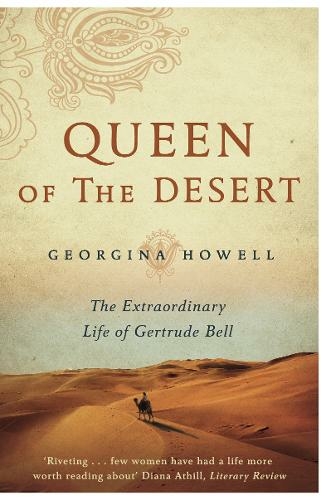

She was the only woman to earn the grade of Political Officer during the Great War and the only woman after the war to be named to the high post of Oriental Secretary the winner of the gold medal of the Royal Geographical Society the honorary director of antiquities at the Baghdad museum and the recipient of a Commander of the Order of the British Empire. A few even believed that she, the exuberant Englishwoman, had fallen in love with Faisal, the melancholy Arab prince, and that she had lost her head like a schoolgirl, but none could deny her achievements: the first woman to earn a first-class degree in Modern History at Oxford the author of seven books, scores of articles in publications that ranged from academic journals to the pages of The Times, and a White Paper considered to be a masterpiece by the British Government. They had heard she was engaged to be married once, and that later there had been a painful love affair, but they wondered why she had never wed.Ī handful of men acknowledged she had achieved nothing less than a miracle by creating the modern state of Iraq many grumbled that she had given in to the whims of the Arabs, causing the British no end of trouble and expense.

Some said she had been arrogant, imperious and ruthlessly ambitious, but others knew that flowers and children could melt her heart, and that what she had desperately wanted, more than anything else, was to have been a wife and mother.

Hushed voices called her “the uncrowned queen of Iraq.” They whispered that she was the brains behind Lawrence of Arabia, and a few knowingly ventured that she had drawn the lines in the sand for Winston Churchill. She had been, they seemed to agree, the most powerful woman in the British Empire in the years after World War I. “Gertrude Bell,” “Gertrude Bell,” the name flew around the room. Resplendent in white tie and tails, beribboned medals flanking their chests, they marched through the halls recounting their explorations and hers.

So it was only natural that on the drizzly evening of April 4, 1927, less than a year after her death, those who gathered at London’s Royal Geographical Society to pay her tribute were mostly men. To picture her you had only to envision a red-haired Victorian woman with ramrod posture, piercing green eyes, a long pointed nose and a fragile figure fashionably dressed, and, whether in London, Cairo, Baghdad or the desert, always at the center of a circle of men. She was always surrounded by men: rich men, powerful men, diplomats, sheikhs, * lovers and mentors.


 0 kommentar(er)
0 kommentar(er)
